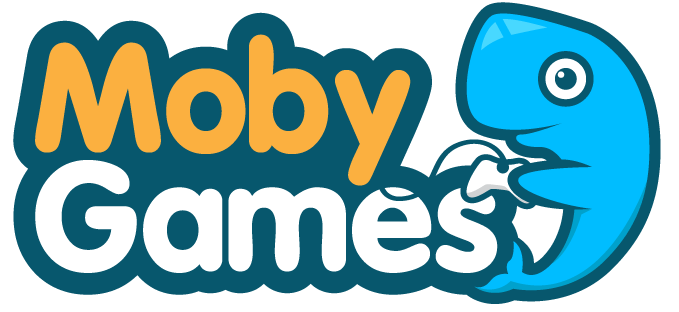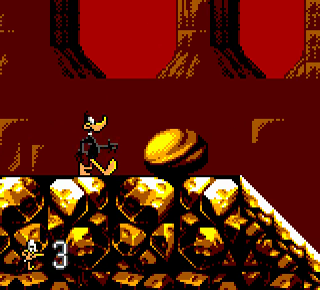Daffy Duck in Hollywood
| |
Player's Review
Yosemite Sam calls on Detective Daffy Duck to retrieve his precious golden movie awards. Mad Professor Duckbrain has stolen the awards and wants a million bucks to give them back.
Daffy Duck in Hollywood is a 1994 action-platformer video game by Probe. The game is loosely inspired by the Looney Tunes animated short Daffy Duck in Hollywood. It received a unique version for Sega's 8-bit systems. While similar in story, concept and themes to the Mega Drive version, the 8-bit version has unique level designs and also several differences in gameplay. The goal of the game is to clear each area in every level of enemies. Until an area is cleared, Daffy can?t progress further in a level. Enemies are defeated by shooting them with bubble gun, which can be upgraded to improve its firing rate and amount of projectiles per shot as well as to change bubble trajectory and to give bubbles ability to home on enemies. Daffy has to make his way through six different worlds of three levels each. Each world is based on a movie genre, and the worlds? names are references to Looney Tunes episodes. At the beginning of the game, the six levels of the first two worlds can be selected in any order. Completing all six unlocks the levels of the next two worlds.
The 8-bit versions have the following differences from the Genesis version: there are no boss fights; the good ending can be achieved only by both getting all awards and playing through the game on Hard Difficulty; there is an extra ending for beating the game on lower difficulties; there are no hit points, so Daffy dies in one hit; Fairy Duckmother power-up does not provide invincibility and acts as an extra hitpoint instead, it does not expire with time, and its effect does not stack; there is a weapon upgrade that extends your bubbles? range.
The Game Gear version also has one level in each of the six worlds that is different from its Master System counterpart. It also features some enemies that are similar to those from the 16-bit version, which were not present in the Master System version.
I played on Hard difficulty and collected all golden cartoon movie awards for the good ending. I tried to get all items, but there is no way to make sure I did. After the credits, I show the bad endings and some animations and music themes.
Daffy Duck in Hollywood is a 1994 action-platformer video game by Probe. The game is loosely inspired by the Looney Tunes animated short Daffy Duck in Hollywood. It received a unique version for Sega's 8-bit systems. While similar in story, concept and themes to the Mega Drive version, the 8-bit version has unique level designs and also several differences in gameplay. The goal of the game is to clear each area in every level of enemies. Until an area is cleared, Daffy can?t progress further in a level. Enemies are defeated by shooting them with bubble gun, which can be upgraded to improve its firing rate and amount of projectiles per shot as well as to change bubble trajectory and to give bubbles ability to home on enemies. Daffy has to make his way through six different worlds of three levels each. Each world is based on a movie genre, and the worlds? names are references to Looney Tunes episodes. At the beginning of the game, the six levels of the first two worlds can be selected in any order. Completing all six unlocks the levels of the next two worlds.
The 8-bit versions have the following differences from the Genesis version: there are no boss fights; the good ending can be achieved only by both getting all awards and playing through the game on Hard Difficulty; there is an extra ending for beating the game on lower difficulties; there are no hit points, so Daffy dies in one hit; Fairy Duckmother power-up does not provide invincibility and acts as an extra hitpoint instead, it does not expire with time, and its effect does not stack; there is a weapon upgrade that extends your bubbles? range.
The Game Gear version also has one level in each of the six worlds that is different from its Master System counterpart. It also features some enemies that are similar to those from the 16-bit version, which were not present in the Master System version.
I played on Hard difficulty and collected all golden cartoon movie awards for the good ending. I tried to get all items, but there is no way to make sure I did. After the credits, I show the bad endings and some animations and music themes.







No Comments have been Posted.